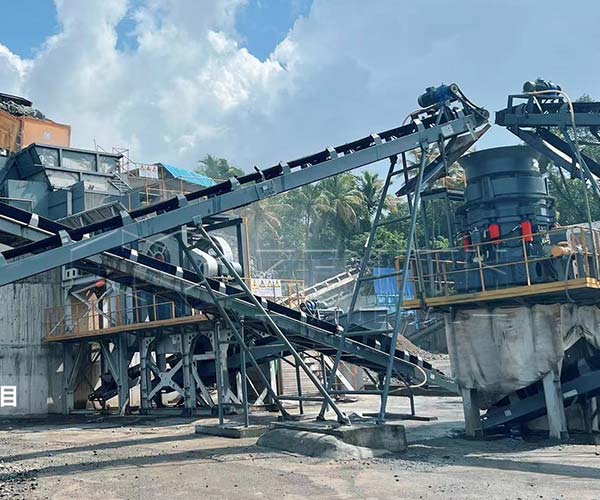Exploring the Vital Role of Stone Crushers in the Booming Philippine Construction Sector
Stone crushers are indispensable machines in the Philippines’ construction and mining industries, transforming large rocks into usable aggregates for roads, buildings, and infrastructure projects. With the country’s rapid urbanization and government-led initiatives like Build Build Build, demand for efficient crushing equipment has surged. These machines reduce boulders into gravel, sand, and smaller particles, lowering costs and speeding up project timelines.
- Essential for Aggregate Production: In areas rich in granite, basalt, and river stones, crushers process raw materials into concrete bases, foundations, and roadbeds.
- Recycling Applications: They handle construction waste, minimizing landfill use and promoting sustainability in urban centers like Manila and Cebu.
- Mining Efficiency: Quarries in regions like Davao and Rizal rely on crushers to extract and size minerals, boosting export revenues from nickel and copper ores.
The Philippine market favors versatile crushers due to diverse terrains, from coastal plains to mountainous interiors, ensuring adaptability to local needs.
Types of Stone Crushers Available for Purchase in the Philippines Market
Selecting the right stone crusher depends on material hardness, output size, and site mobility. The Philippines offers a range of models from global brands like Zenith, catering to small-scale operators and large firms alike.
- Jaw Crushers: Ideal for primary crushing of hard stones like granite; they use compressive force via movable plates, handling 50-80 TPH at capacities up to 250mm feed size, popular for their reliability in quarries.
- Cone Crushers: Suited for secondary and tertiary stages, these extrude materials for finer aggregates; models like the Kinglink KL1000 process river stones at 100-150 TPH, yielding cubic shapes for high-quality concrete.
- Impact and Hammer Crushers: Best for softer materials like limestone; they deliver high reduction ratios with mobile options, such as diesel-powered hammer mills crushing at 25 HP for portable site use.
- Mobile Crushing Plants: Track-mounted units combine feeders, crushers, and screens; configurations with vibrating feeders and belt conveyors process 1-1100 TPH, perfect for remote Philippine projects.
Each type balances power, energy use, and maintenance, with PEW series jaw crushers noted for their productivity in mining and recycling.
Best Stone Crusher Equipment for Philippine Buyers
Top-tier stone crushers in the Philippines emphasize rugged builds for tropical climates, featuring corrosion-resistant steels and dust-proof designs. Advanced hydraulics and automation enhance safety and output.
- Capacity and Power: Units range from 30-200 tons daily, powered by 25-150 HP motors; for instance, mobile jaw crushers achieve 40-60 TPH with electric or diesel drives for flexible energy sourcing.
- Feed and Output Sizes: Inlet openings up to 520mm handle boulders, producing 5-40mm aggregates; cone models offer adjustable gaps for precise sizing in sand-making applications.
- Mobility and Setup: Crawler-mounted plants weigh under 50 tons, deploying in hours without foundations; integrated screens segregate fractions via chevron belts for streamlined operations.
- Safety and Eco-Features: Overload protection, low noise under 85 dB, and water-spray systems reduce dust, complying with DENR regulations for sustainable mining.
These specs ensure longevity, with brands like Aimix providing configurations for granite and basalt, optimizing for the archipelago’s volcanic rocks.
Price Ranges for Stone Crusher Machines Tailored to Various Budgets in the Philippine
Pricing for stone crushers in the Philippines varies by type, capacity, and origin
- Entry-Level Models: Basic hammer or jaw crushers start at PHP 242,000-290,000 for 25 HP mobile units, ideal for small contractors processing 30 TPH.
- Mid-Range Investments: Jaw-cone combos for 50-100 TPH range PHP 2-5 million, including screens; diesel types add PHP 500,000 for fuel flexibility in off-grid sites.
- Premium Mobile Plants: Full 100-150 TPH setups cost PHP 7-12 million, with cone crushers at PHP 15 million for crawler versions; shipment duties inflate prices by 10-15%.
Choosing the Best Stone Crusher Equipment for Optimal Performance in Philippin
Investing wisely requires evaluating site-specific needs, from rock type to regulatory compliance, to maximize returns.
- Material Compatibility: Granite demands jaw-cone combos for hardness >300 MPa; river stones suit impact crushers for rounded outputs in sand production.
- Site Logistics: Mobile units excel in remote areas like Mindanao, avoiding transport costs; stationary plants suit fixed quarries with higher throughput.
- Maintenance and Support: Opt for suppliers with local networks, as parts delays can halt operations; energy-efficient models cut fuel bills by 20%.
- ROI Projections: High-capacity plants recover costs in 1-2 years via 1-1100 TPH outputs, factoring in PHP 2-12 million price tags.
Consult experts for custom configs, ensuring alignment with projects like highway expansions.
Best Practices to Ensure Longevity of Your Stone Crusher Investment in the Philippine
Proper upkeep extends machine life amid humidity and dust, preventing downtime in fast-paced builds.
- Daily Inspections: Check belts, rollers, and lubrication; clean dust filters to maintain 95% efficiency.
- Scheduled Servicing: Replace wear parts every 500 hours; align jaws quarterly for uniform crushing.
- Operator Training: Use protective gear and follow load limits to avoid overloads, common in basalt processing.
- Environmental Adaptations: Install enclosures for rain protection; monitor vibrations for early fault detection.

